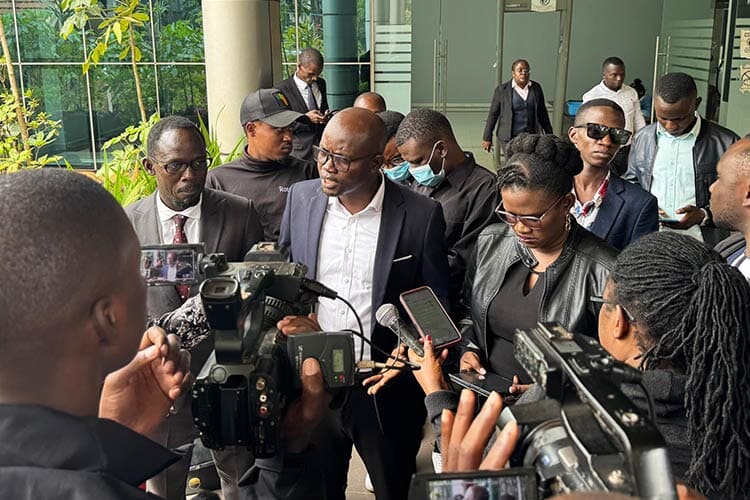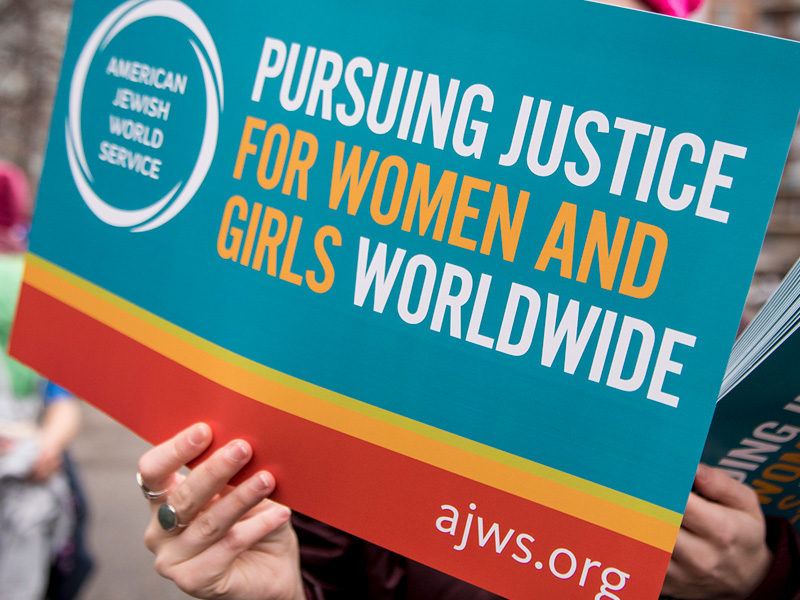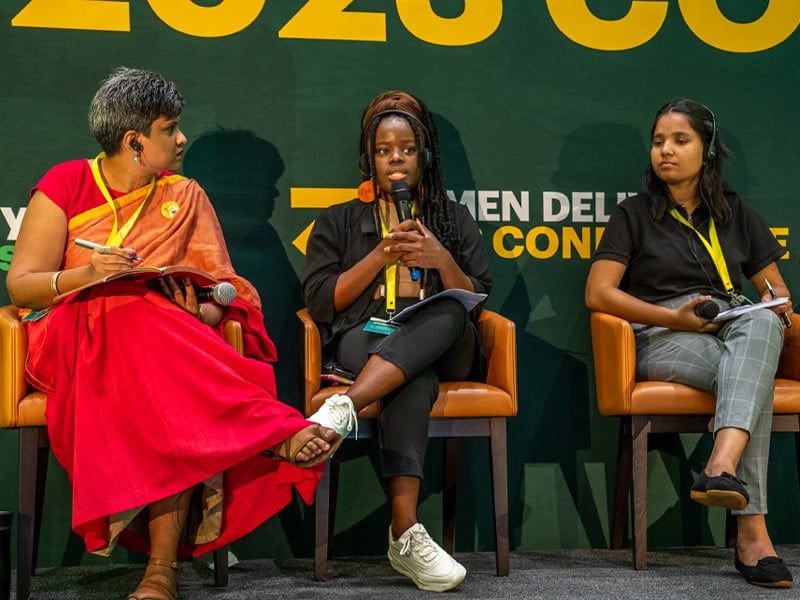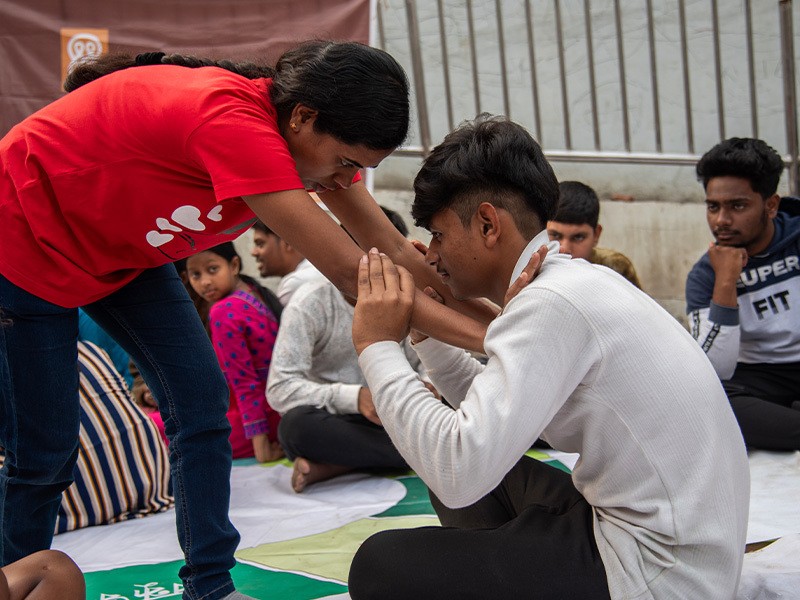Since the passage of the Uganda’s Anti-Homosexuality Act (AHA) in 2023, the ability of LGBTQI+ people to live freely, openly and safely has been shattered. The draconian law criminalizes consensual same-sex relationships, punishing certain offences with life in prison and even the death penalty.
After a similar law was repealed over a decade ago, this AHA’s passage has fueled hostilities against LGBTQI+ persons (attacks have surged) and against those who support them. But AJWS grantee Human Rights Awareness and Promotion Forum (HRAPF) has become a powerful bastion of resilience and hope — despite ever-present risks.
“It is important to stand up and say something that not many other people will say,” said HRAPF Acting Executive Director Edward Mwebaza. “A time is coming when the minority are going to be on right side of history.”

Founded in 2008, HRAPF provides legal aid services, raises awareness about human rights and the law, conducts research, and documents human rights violations. Over the years, they have mounted successful legal challenges to discriminatory laws and policies targeting Uganda’s LGBTQI+ community. HRAPF was instrumental in overturning the Uganda’s first AHA in 2014, and is actively working to annul this latest, more severe version. Earlier this year, they filed an appeal that currently sits with Uganda’s Supreme Court.
In the meantime, thousands upon thousands of lives lie in limbo — LGBTQI+ people forced to live under threat of violence, imprisonment or even death.
“There are so many people who are chased out of their work, out of their homes; people whose parents have disowned them, whose friends have disowned them. We cannot also run away,” said Flavia Zalwango, HRAPF’s acting deputy director. “Someone has to fight for them.”
Threats to activist organizations like HRAPF are also prevalent.
“The environment is very toxic,” Mwebaza said. “Given the fact that we are living in an era of a new AHA, civil society is treading very carefully.”
Still, HRAPF has already found some success fighting back. The group successfully challenged a provision in the AHA law that criminalized people living with HIV and another that barred landlords from renting to people “suspected” of being LGBTQI+.
These legal wins are just some in a long list of milestones. In 2010, the group established Uganda’s first legal aid clinic serving the LGBTQI+ community. It has since grown to serve more than 15,000 people.
“At the beginning, people thought this would be impossible, that it would not be allowed,” Mwebaza said. “But against all odds, we did it. And we have been able to reach so many people.”
Since 2012, the group has been training people from the LGBTQI+ and sex worker communities to do paralegal work. Many have gone on to become licensed paralegals and human rights advocates working on national and international levels.
“I remember when we first started our program, it was a struggle to get a lawyer for this kind of work,” Zalwango said. “Now we have a community that has bridged that gap. They have learned how to document violations and create reports. It has been very empowering for the LGBT community.”
With the help of this network, which stretches across Uganda, HRAPF has documented more than 1,800 human rights violations against LGBTQI+ persons attributable to the Anti-Homosexuality Act. These findings are published in the organization’s monthly reports which are routinely referenced by noted human rights organizations and media outlets worldwide.
In 2020, HRAPF successfully defended 20 LGBTQI+ youth who had been brutalized and arrested while living in a homeless shelter and accused of spreading COVID-19 — a false charge meant to discriminate and intimidate the queer community. HRAPF fought for their release from jail, pushed to press charges against town officials and secured significant damages for each of the youth.
Years of resistance have taught the activists at HRAPF that the path to justice is not linear – and that they can withstand any challenge. Their resolve was put to the test when the Trump administration slashed US foreign aid. That impacted the group’s programming and had a chilling effect on their advocacy work with policymakers in government. In recent months, however, those relationships have started normalizing. Zalwango has even been tapped to help develop Uganda’s next HIV/AIDS Strategic Plan.
“Every day, we are working to make sure things are better,” Mwebaza said, recalling how people often thank him for all that HRAPF is doing. “I feel so privileged and honored to make that contribution — despite the risks.”




